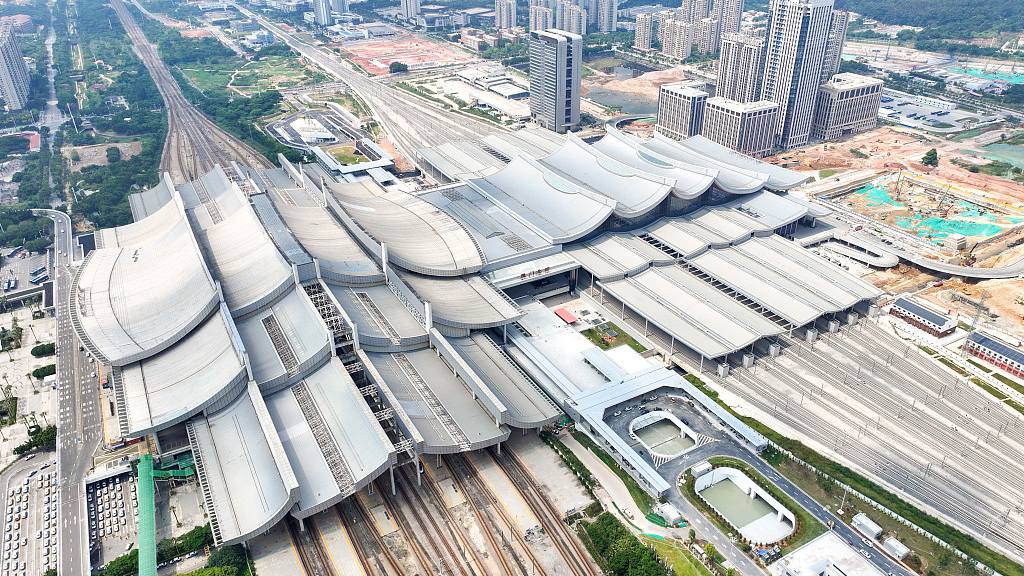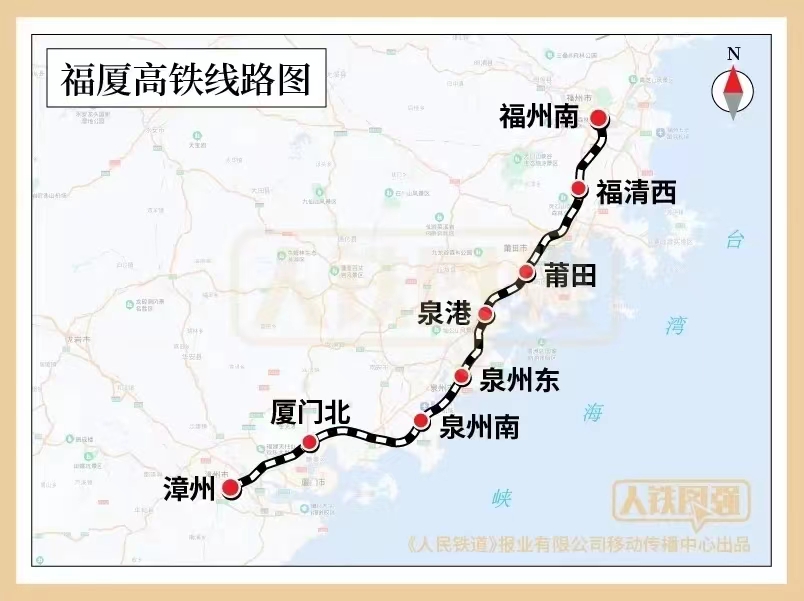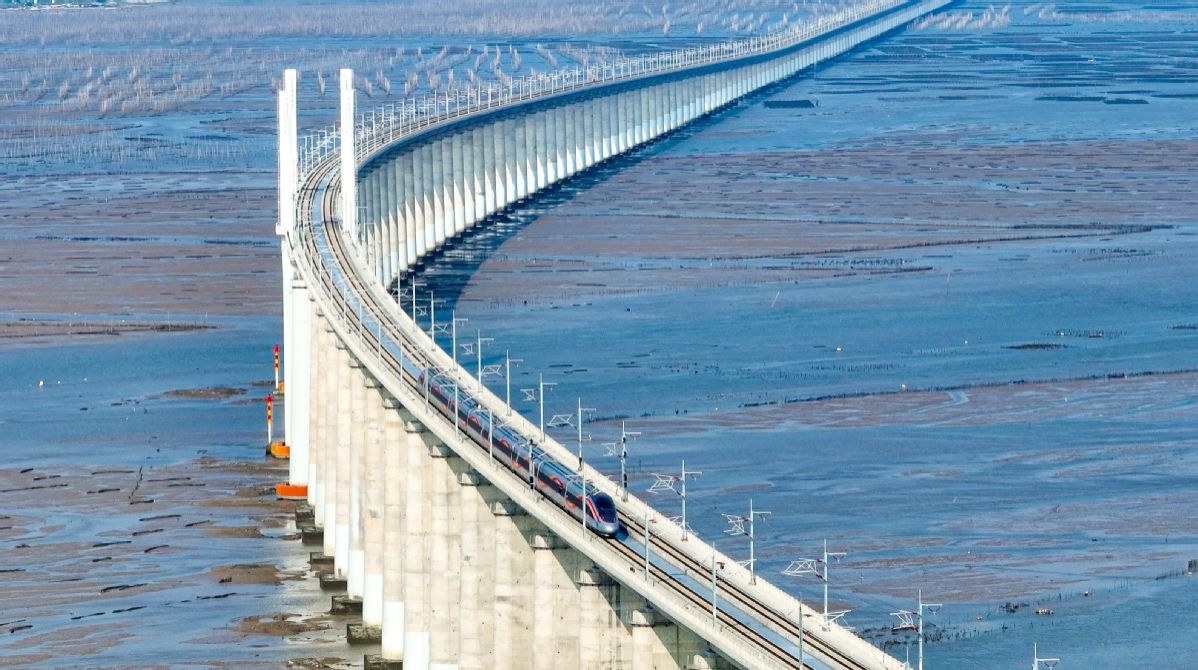China’s fastest cross-sea high-speed railway, which boasts a maximum speed of 350 kilometers per hour, began operation on Thursday, connecting cities including Fuzhou and Xiamen along the west coast of the Taiwan Straits.
A Fuxing bullet train departed from Fuzhou, the capital of east China’s Fujian Province, at 9:15 a.m., marking the opening of the 277km Fuzhou-Xiamen-Zhangzhou high-speed railway.
Being the first of its kind in China, the railway slashes the travel time between Fuzhou and Xiamen, two major cities in Fujian Province, to 55 minutes, according to the China State Railway Group Co., Ltd., the country’s railway operator.
With stops in cities of Fuzhou, Putian, Quanzhou, Xiamen and Zhangzhou, the railway is the latest mega infrastructure project launched to boost connectivity in Fujian, whose transport options and efficiency have long been constrained by its mountainous terrain.

An aerial view of the newly built Xiamen North Railway Station on the Fuzhou-Xiamen-Zhangzhou high-speed railway in Xiamen, east China’s Fujian Province, September 21, 2023. /CFP
Construction of smart high-speed railway
With its construction starting in 2017, the railway features intelligent technologies, including the Internet of Things, edge computing and geographic information system, taking another step forward in the country’s construction of intelligent transportation.
It also enjoys a breathtaking sea view with 19.9 kilometers of tracks built over the sea, traversing Quanzhou Bay, Meizhou Bay and Anhai Bay via bridges that engineers said were extraordinarily hard to build.

The route of the Fuzhou-Xiamen-Zhangzhou high-speed railway.
“This railway line brings together almost all challenges encountered during the construction of previous high-speed rail projects,” said Li Pingzhuo, project manager of China Railway Siyuan Survey and Design Group Co., Ltd., the company that designed the railway project.
The construction of the three bridges has successfully conquered challenges posed by strong winds, high waves, deep waters and the corrosive nature of the marine environment, Li said, adding that the railway has been fortified against earthquakes as it passes through an area with a high seismic risk.

















